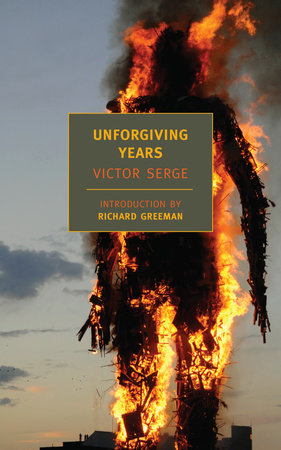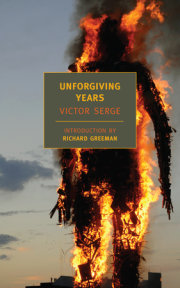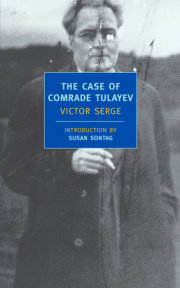"Unforgiving Years, published in France in 1971 and translated into English this year, is a visionary literary work rooted in the political tragedy of a Soviet secret agent who tries to take back his existence from the Party. The settings are prewar Paris, the siege of Leningrad, the fall of Berlin, and a postwar refuge in Mexico. This is the ultimate farewell to Communism." --The Boston Globe
"The Unforgiving Years...has now at last been translated into electric English by the indefatigable Richard Greeman...It's a seething, hallucinatory novel..." --Harper's
"Born in Brussels of Russian revolutionary exiles, Serge (1890-1947) has long had a reputation as polemicist and journalist, but this powerful novel of the descent into WWII makes a strong case for his political fiction...Serge remains sophisticated even during the book's more noirish moments, and action sequences form an inseparable part of his hypnotic, prophetic vision." --Publisher's Weekly (Starred Reveiw)
“The work of the writer Victor Serge faultlessly captures the labyrinth of bureaucratic incrimination into which the Soviet Union descended.” –The Atlantic
“A witness to revolution and reaction in Europe between the wars, Serge searingly evoked the epochal hopes and shattering setbacks of a generation of leftists…Yet under the bleakest of conditions, Serge’s optimism, his humane sympathies and generous spirit, never waned. A radical misfit, no faction, no sect could contain him; he inhabited a lonely no-man’s-land all his own. These qualities are precisely what make him such an inspiring, even moving figure.” –Bookforum
"Both Unforgiving Years and The Case of Comrade Tulayev in 2003 have been wonderfully translated by Richard Greeman, who has spent his academic and post-academic life bringing to prominence Serge’s writings as literature in the first ranks of modernism and in the mainstream of Russian and French literature. His foreword to Unforgiving Years is worth the price of the book, which deserves attention as well for reminding us that the political novel was once a prominent genre and fulfilled a need hard to meet in this self-absorbed literary period. It also gives us a clear-eyed picture of Serge’s sad last years when hope, if it existed at all, was mostly the frail hope of inmates in prisons and concentration camps." -World Socialist Web Site
“A worker, a militant, an intellectual, an internationalist by experience and conviction, an inveterate optimist, and always poor…He took part in three revolutions, spent a decade in captivity, published more than thirty books and left behind thousands of pages of unpublished manuscripts, correspondence and articles. He was born into one political exile, died in another, and was politically active in seven countries. His life was spent in permanent political opposition…His refusal to surrender to either the Soviet state or the capitalist West assured his marginality and consigned him to a life of persecution and poverty. Despite living in the shadows, Serge’s work and his life amount to a corrective to Stalinism, and an alternative to the market.” –Susan Weissman, Victor Serge
“I know of no other writer with whom Serge can be very usefully compared. The essence of the man and his books is to be found in his attitude to the truth. There have of course been many scrupulously honest writers. But for Serge the value of the truth extended far beyond the simple (or complex) telling of it.” –John Berger
"Serge, who has been championed by Susan Sontag and many others, was born in Brussels in 1899 to emigre Russians who'd fled the Czar. He became a political activist, was jailed and arrived in Russia in 1919 to support the Bolshevik Revolution. He rose high in the Comintern before falling foul of Stalin and finding himself in jail and then exile. He was steamrolled by history, and out of this experience he crafted a series of extraordinary memoirs and novels. "Unforgiving Years," here translated into English for the first time by Richard Greeman, tells the story of two revolutionaries, D and his friend Daria, as they approach, endure and survive World War II. This is downbeat and dangerous mise-en-scene...written for real by a man who was there." —Los Angeles Times
"Serge can recognize the range of experience and responses that make up the texture of life in even the most nightmarishly repressive system." --Scott McLemee










